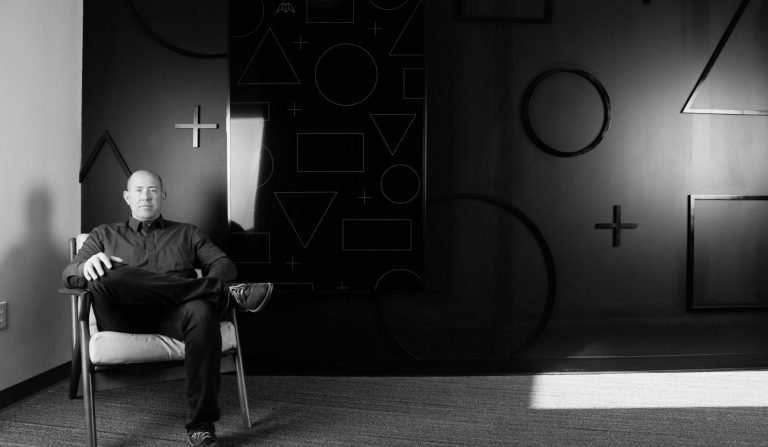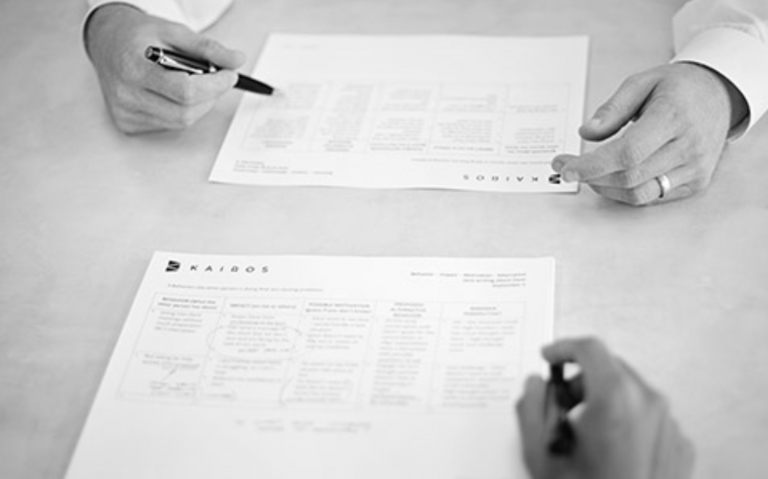Tools for transformation.
Need to clarify expectations for others’ performance? Sharpen your thinking to create a crisp objective and message.
The BOX chart is useful when you need to clarify expectations for an individual or group. It helps you think through the desired behaviors and expected outcomes. Most importantly, it forces you to articulate the desired internal transformation(s) needed to sustainably generate those behaviors and outcomes.
Finding that your customers have been disrupted by a crisis? Find your own footing by focusing on their journey.
This template is for use by executive teams to re-imagine how their organizations engage with customers after those customers have been destabilized by an external or internal crisis. It is called the Kairos Crisis Redemption Model because it offers an opportunity to repair what is broken (the very definition of “redemption”) as a result of a destabilizing event. We built it at the beginning of the 2020 global pandemic to elevate our own thinking, and then discovered it had more universal applicability. Senior leaders can use it to frame a discussion that challenges long-held assumptions and maps out new horizons for those they lead.
Heading into an uncomfortable conversation? Structure your approach, to drive a productive dialog.
In emotionally-charged conversations, it can be hard to keep your thinking straight. The Trust Repair Template is designed to structure your approach to a relational conflict, by separating out issues into 4 different domains: reality, perception, intention, and alternatives. What makes it doubly effective is that it forces you to analyze your own contribution to the conflict.
Confused about who owns what initiatives? Clarify decision rights with this guide.
Two actions that dramatically improve the quality and speed of decisions are: 1) defining ownership and roles for decisions (called “decision rights”) and 2) using repeatable decision processes.
RACI (Responsible, Accountable, Consulted, Informed) is a great framework for clarifying “decision rights.” Use it anytime decisions or tasks are bogged down, or anytime it isn’t clear who owns them.
Oftentimes we assume the other person is at fault in a damaged trust relationship.
Looking inside helps us see if there’s something we should own and change.
Teams can improve their skills in productively surfacing and resolving conflicts, but it takes commitment, courage, and a good game plan.
This tool provides a process that meets a team at their current level of experience and maturity, and simultaneously calls them forth to greater skill and passion in managing conflict.
It always seems risky to tackle tough, emotionally-loaded issues. But the greater long-term risk to organizational health and results is in not tackling them at all.
Struggling to know whether your processes are working or if your team is showing up well and providing value to your customers?
After Action Review (AAR) is an evaluation tool designed to help teams determine how well they performed compared to their desired outcomes. When executed well and often, teams improve programs, processes, and performance, leading to cultural and operational improvements in the business.
Kairos has gotten serious about AARs in 2023. By strengthening our processes and creating specific AAR templates for each area of our consulting work, we’re generating better (and more) insights and becoming a stronger team. We think you might, too. You can download a template we use along with some pro tips. We also talk about AARs in an episode of Kairos Riffs, here.


When You’re Ready:
Call or Text: 317-908-0136
Email: ready@kairosconsulting.com












